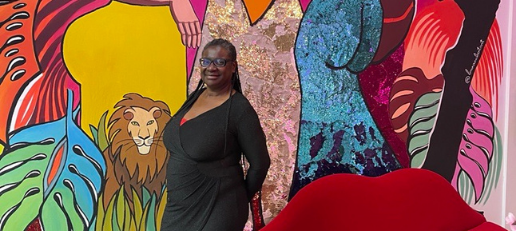
THR's opinion
A Case Study in Travel Accommodation – Spain’s First All-Female Hostel
What’s the Hostelle story?
The first all-female hostel in Spain, Hostelle Barcelona is already making waves in the sector.
Originally from Suriname, founder Bianca Brasdorp aims to conquer the world, or at minimum an important segment of the travel accommodation space. Her “Hostelle” hostel brand just opened its second location, in Barcelona, after a successful start at the company’s first home in Amsterdam.
I had the opportunity to speak with Bianca about her marketing strategy, expansion plans, and the setbacks she’s overcome, but most importantly about the message of inclusivity she seeks to transmit through her brand.
A hard journey
There are few precedents for black, female, foreign entrepreneurs in Spain and Bianca faced a number of seemingly insurmountable obstacles that challenged her during the setup of her business.
The bureaucratic issues were numerous, not to mention that many male contractors and other service providers simply did not take her seriously, to the point where a male colleague would on occasion have to make calls on her behalf to get a genuine response.
As well, Bianca faced significant funding challenges. Self-financed, questioned by banks and investors, Bianca had to use her own savings and at one point even pause construction due to lack of funds, before starting up again and finally making it to completion.
Despite these setbacks, Bianca persevered, and the hostel opened in April 2022.
Brand development
Bianca has woven multiple inclusive narratives into the Hostelle brand, all of which have personal significance for her. A tenacious entrepreneur who bootstrapped her ventures, Bianca has demonstrated the resilience necessary to drive her innovative business forward while making a positive impact on the lives of many female travelers, through a carefully curated brand.
First and foremost, Bianca aspired for the space to be modern and welcoming. Her Surinamese background is incorporated into bright, positive colors that influence the brand expression from the colored stencils in the hostel’s terrace to the sunny, upbeat design of the dorm rooms. At the entrance to the hostel is an urn specifically designed for tulips, a nod to Bianca´s adopted home in Holland.
Second, the Hostelle brand is consummately inclusive. There are few all-female accommodation spaces – as far as Bianca knows, Hostelle is the first women-only hostel in Spain. Bianca cited multiple examples whereby women were looking for a safe space to stay and chose Hostelle. Several female Muslim travelers would have been uncomfortable sharing a room or restroom facilities with men, for example. For other women, the sense of camaraderie in an all-female space is attractive, not to mention the corollary psychological safety.
In parallel, Black travelers are also an important segment for the brand – if there are few spaces just for women, there are even fewer spaces for black women travelers. Bianca recalled a period when a huge wave of black American women began to come through the Amsterdam hostel, simply because they’d seen Hostelle featured in an article. As Bianca noted, representation matters.
The hostel is also handicap accessible with a dedicated bathroom, dorm facilities, and escape plan in case of fire or emergency. Hostelle as well encourages visitors of all ages – a pair of octogenarian guests recently came through.
Marketing strategy
As with most hostels aimed at budget-conscious travelers, Hostelle competes with peers on price, but in many ways that’s where the similarities end.
The sheer novelty of the concept in Spain has already has led to unexpected, positive responses - a Spanish TV crew wrote to Hostelle unsolicited to ask for an interview and to film the space, and Bianca has made some intelligent decisions around building a community, for example inviting the entire local neighborhood for a two-hour walkthrough and meet-and-greet of the new hostel, serving to familiarize the locals with the concept and also deliver a first line of promotion.
For other marketing channels, Hostelle is present in most – the principal reservations outlet is Booking.com, followed by HostelWorld.com, though when it comes to social, Hostelle has them all. Bianca admits that while Facebook, Instagram, TikTok, and Twitter are all present, the sheer amount of time required to manage multiple platforms often gets the best of the lean Hostelle team.
Fortunately, again most likely through the originality of the concept, Hostelle often comes up close to first in search rankings, taking some of the community management pressure off the Hostelle team.
Bianca has also learned to be flexible about her marketing – during the pandemic, while reservations tanked as tourism dried up, Hostelle pivoted to a strategy of longer-term stays for students. This residential model got the business through the darkest days of the pandemic, before opening back up again to a more standard tourist profile.
What’s next?
After its initial success in Holland – Hostelle Amsterdam recently celebrated its 10-year anniversary - Bianca has ambitious plans for the company. While she’d love to set up shop in locations such as New York City, for the short term she’s set her sights on a European strategy, ideally rolling out to 5 locations – Amsterdam, Barcelona, London, Paris, and Berlin - in the near future, with London being next. Bianca has done her research and knows these big tourist destinations have a need for her inclusive product, and we’re excited to see what comes next for Hostelle.
Guest article by THR Senior Marketing Director Benjamin Rhatigan